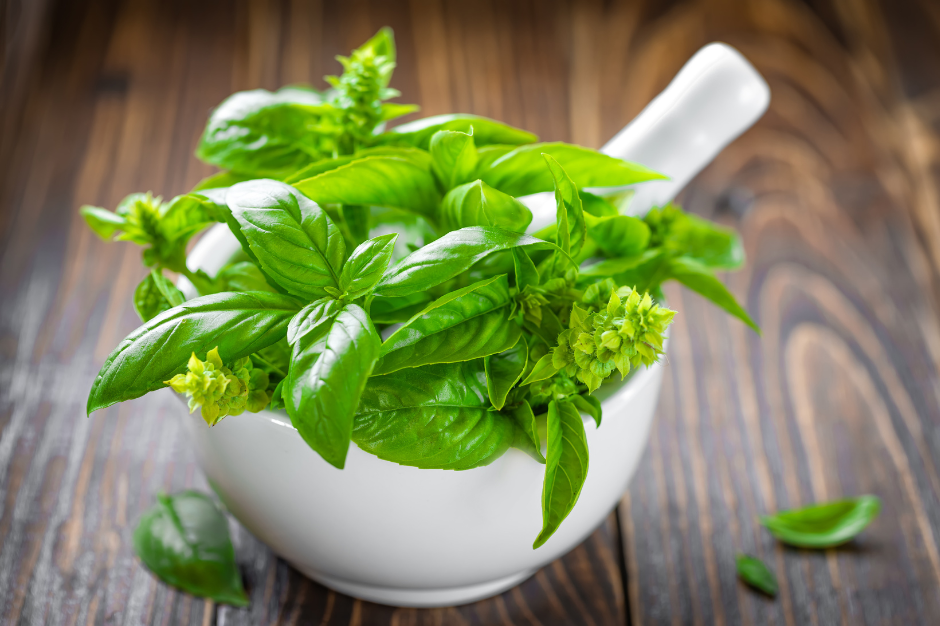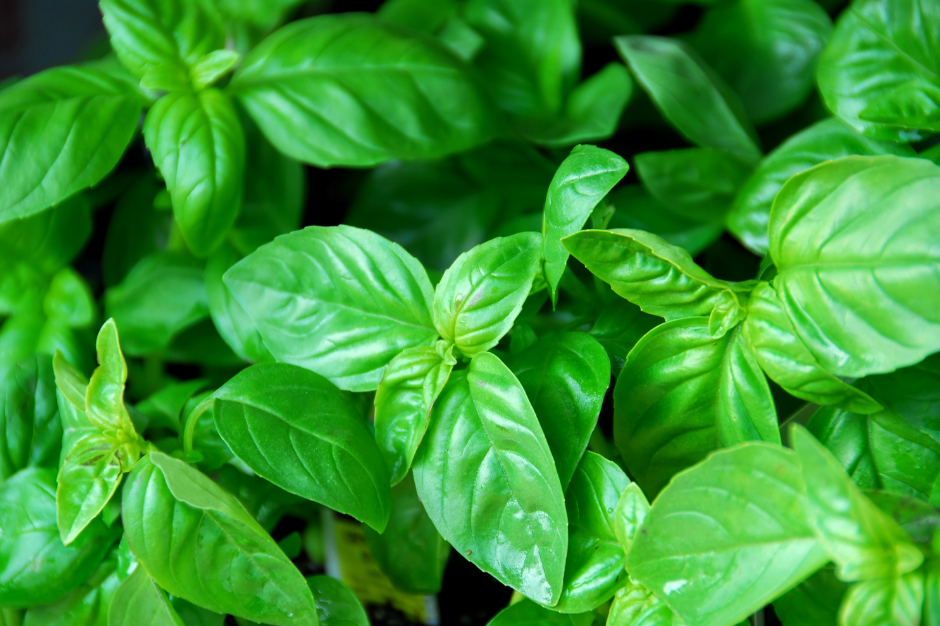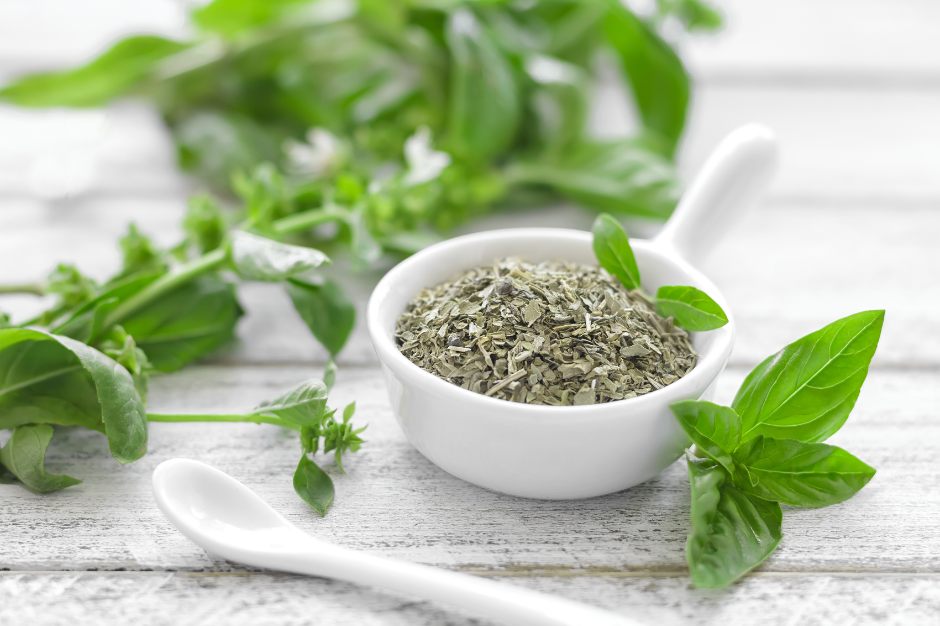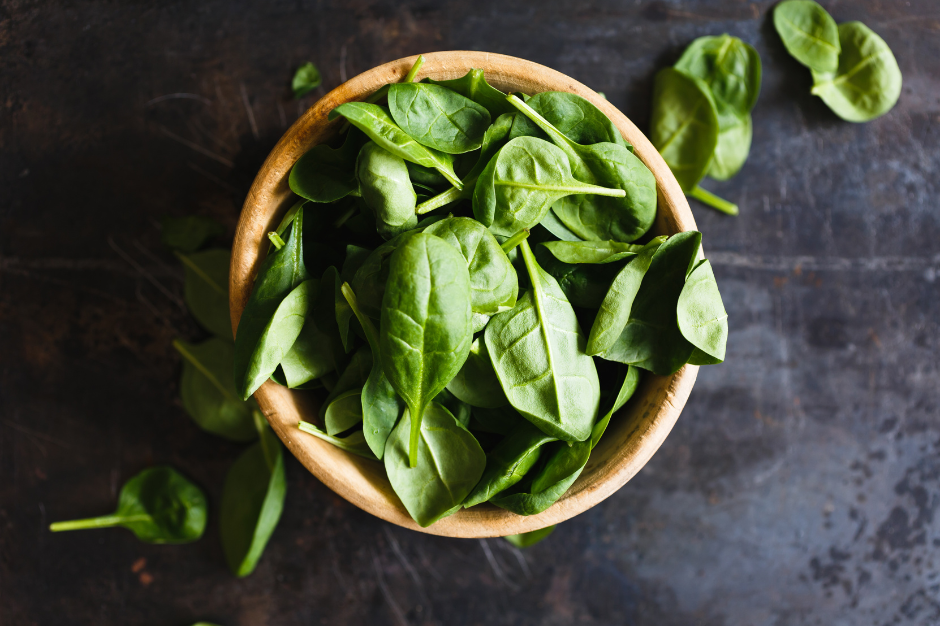Overview
Basil is a highly fragrant plant whose leaves are used as a seasoning herb for many different types of foods. Basil has become one of the most recognisable herbs around the world.
Basil has round leaves that are at times pointed. They are green in colour, although some varieties contain some red or purple. Basil looks a little like peppermint, which is not surprising since they belong to the same plant family.
There are more than 60 varieties of basil, all of which differ somewhat in appearance and taste. While the taste of sweet basil is bright and pungent, other varieties also offer unique tastes: lemon basil, anise basil and cinnamon basil all have flavours that subtly reflect their name.
The scientific name for basil is Ocimum basilicum.




